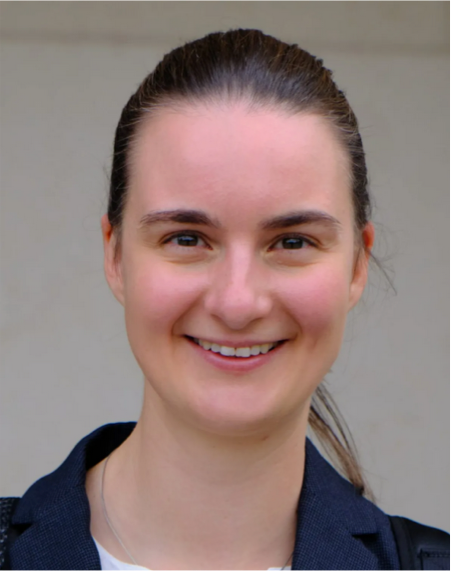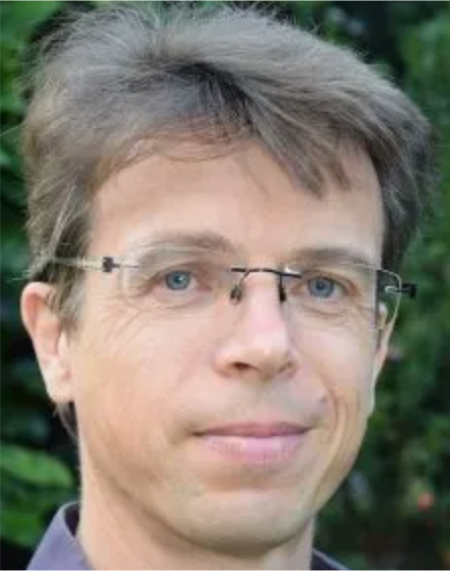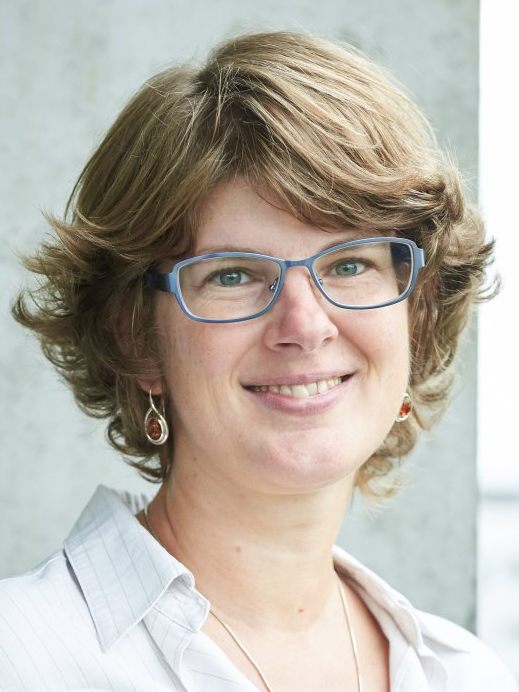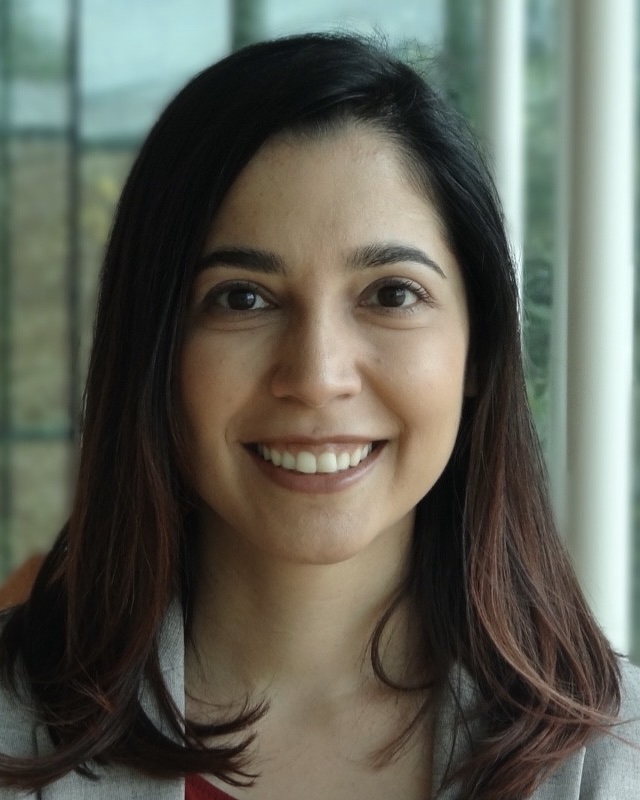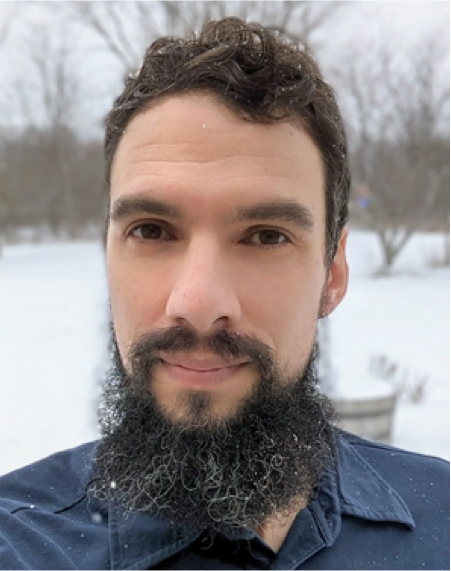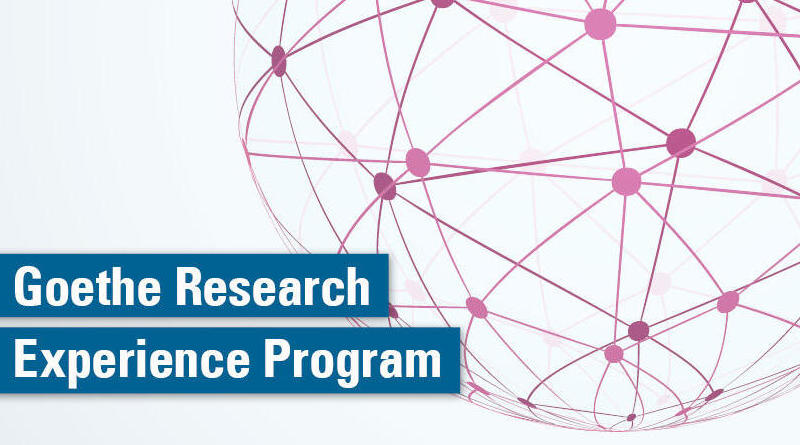
Join our international student research teams to explore
Note: The course material and the details specific to the upcoming 6th edition of EXPLORE (Winter term 2025/26), especially the needed course material, can be found here.
What is EXPLORE?
- EXPLORE is a research-focused course in which students from Germany, Canada and the US work in small international research teams on hot-topics of modern cosmology, astro-, particle and gravitational physics.
- The EXPLORE program is supported by the Academic Innovation Fund (AIF) at York University, Goethe University QSL (“Quality Assurance in Teaching”) funds, the DFG Collaborative Research Center CRC-TR 211 “Strong-interaction matter under extreme conditions” and the State of Hesse through the research cluster ELEMENTS and the Goethe Research Experience Program (GREP).
-
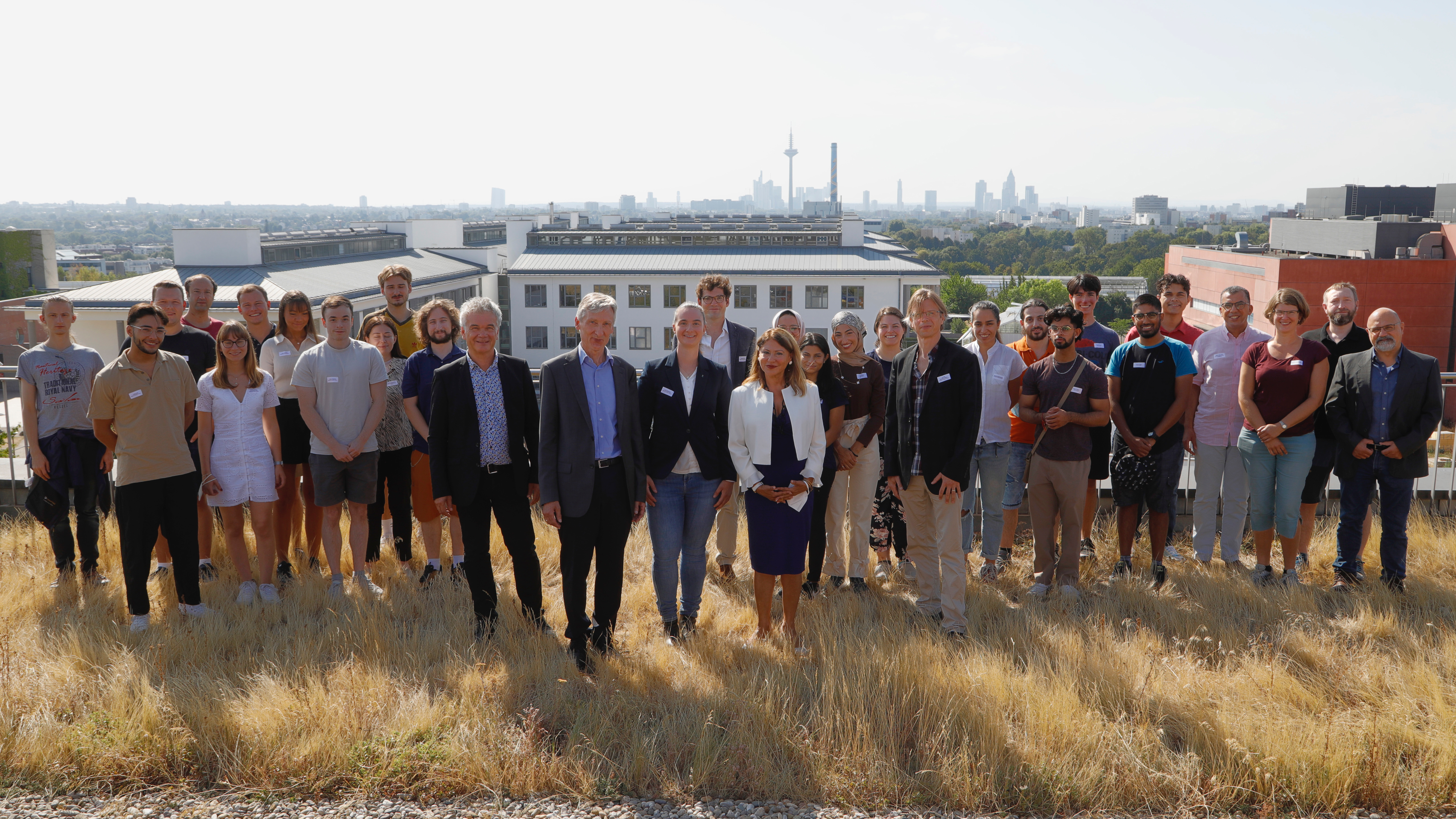
Start doing Research: About the course structure
-
Research groups & meetings:
With your peers from Germany, Canada and the US, you will work in small groups exploring and working on real research topics (see below). Each group is being assigned at least one mentor (a professor) and one junior mentor (an early career researcher) with whom you will have weekly online meetings to discuss the project, to exchange your ideas and receive feedback. -
Lectures & programming tutorials:
The course will be initially guided by lectures, held by the professors in the mentors team, to provide the basic knowledge of the topics. Additionally, you will have Python programming tutorials to learn scientific coding or improve your coding skills. -
Research journals:
To keep track of the progress you have made with your project, you will hand in weekly research journals which will be corrected by your tutor. -
Final Workshop:
At the end of the course, your group will give a presentation on your research result in a final workshop, with which you will train your communication skills. After a successful presentation, you will have passed the course.
To get an impression of past EXPLORE workshops, please take a look here. -
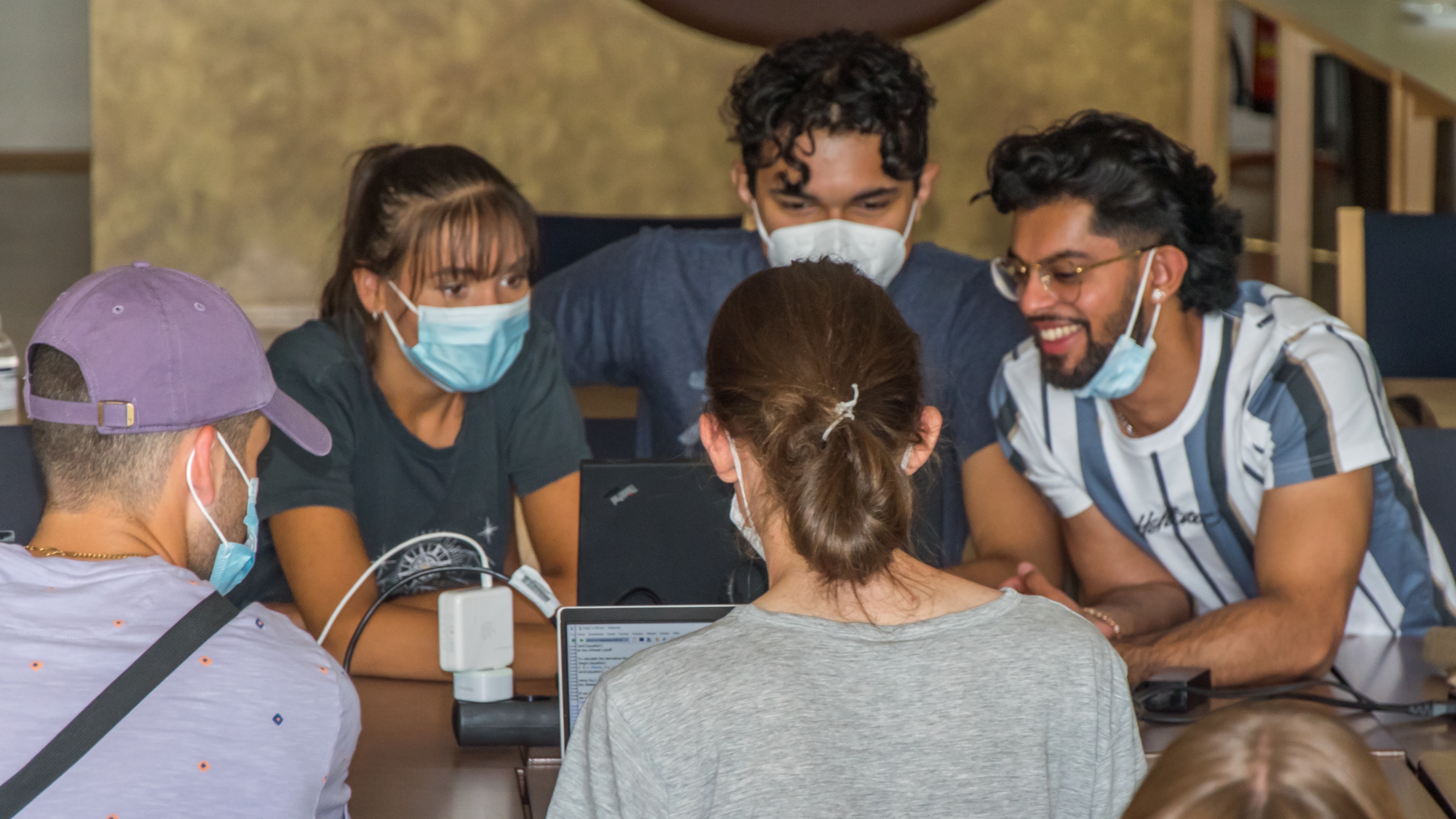
Meet your peers and mentors: The EXPLORE Summer School
-
As a highlight after passing the course, you can sign up for the in-person EXPLORE Summer School, which will be hosted at one of the partnering universities. The summer school not only provides interesting talks by outstanding scientists, but also local social activities to get to know your peers and mentors!
For the past EXPLORE summer schools, please see here. -
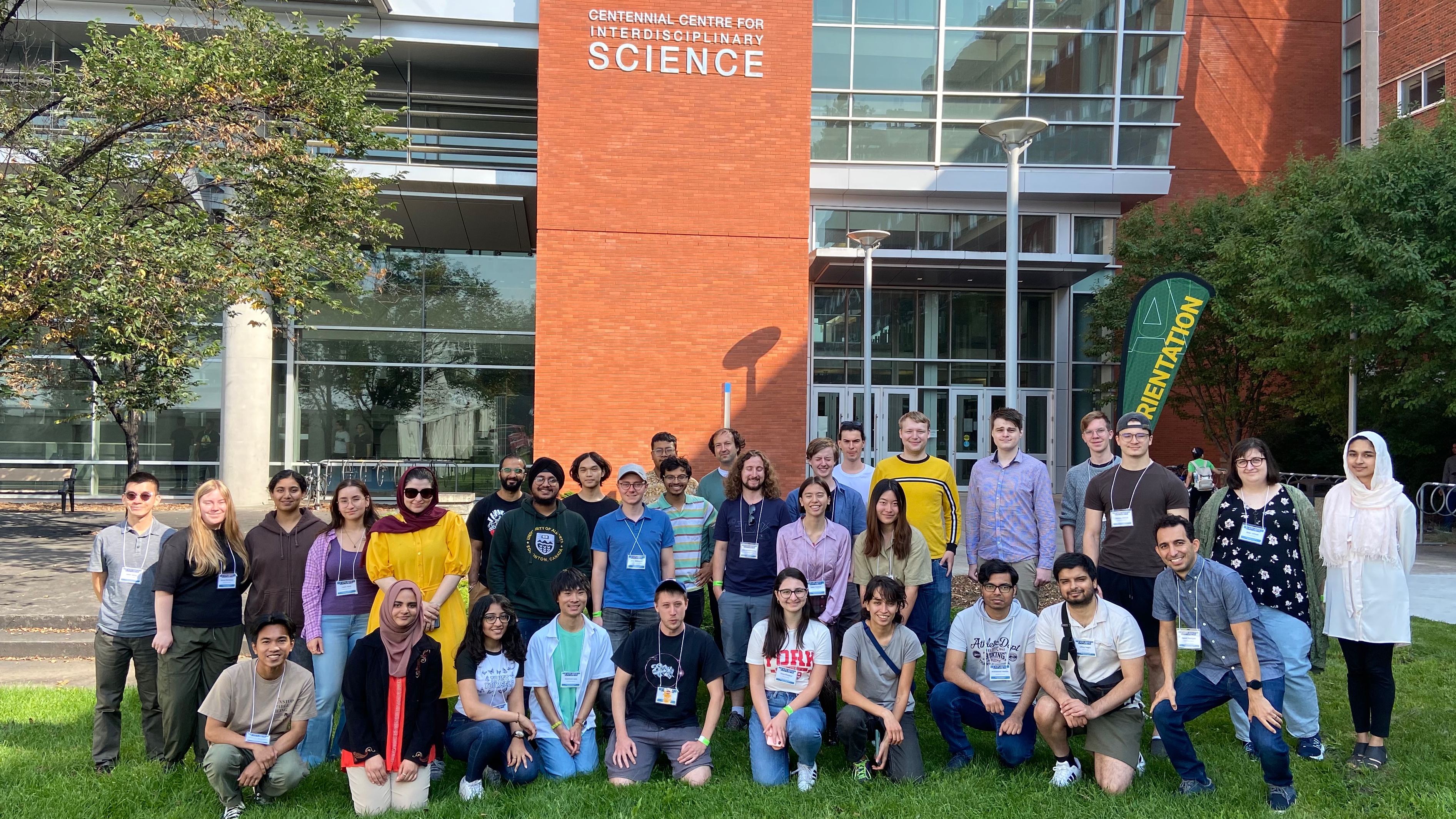
NEW: Apply for a research stay abroad after the course!
- After completing the EXPLORE course, students can now apply for a fully sponsored 2-months research stay abroad at one of the participating universities to continue with their EXPLORE research project, and/or to write a Bachelor’s/Master’s thesis under joint supervision of an EXPLORE mentor from Goethe University and one from the partner universities abroad. Seize the opportunity to study internationally and work side-by-side with your mentors!
- From the side of Goethe University, the research stay is made possible by the GREP Programm.
-
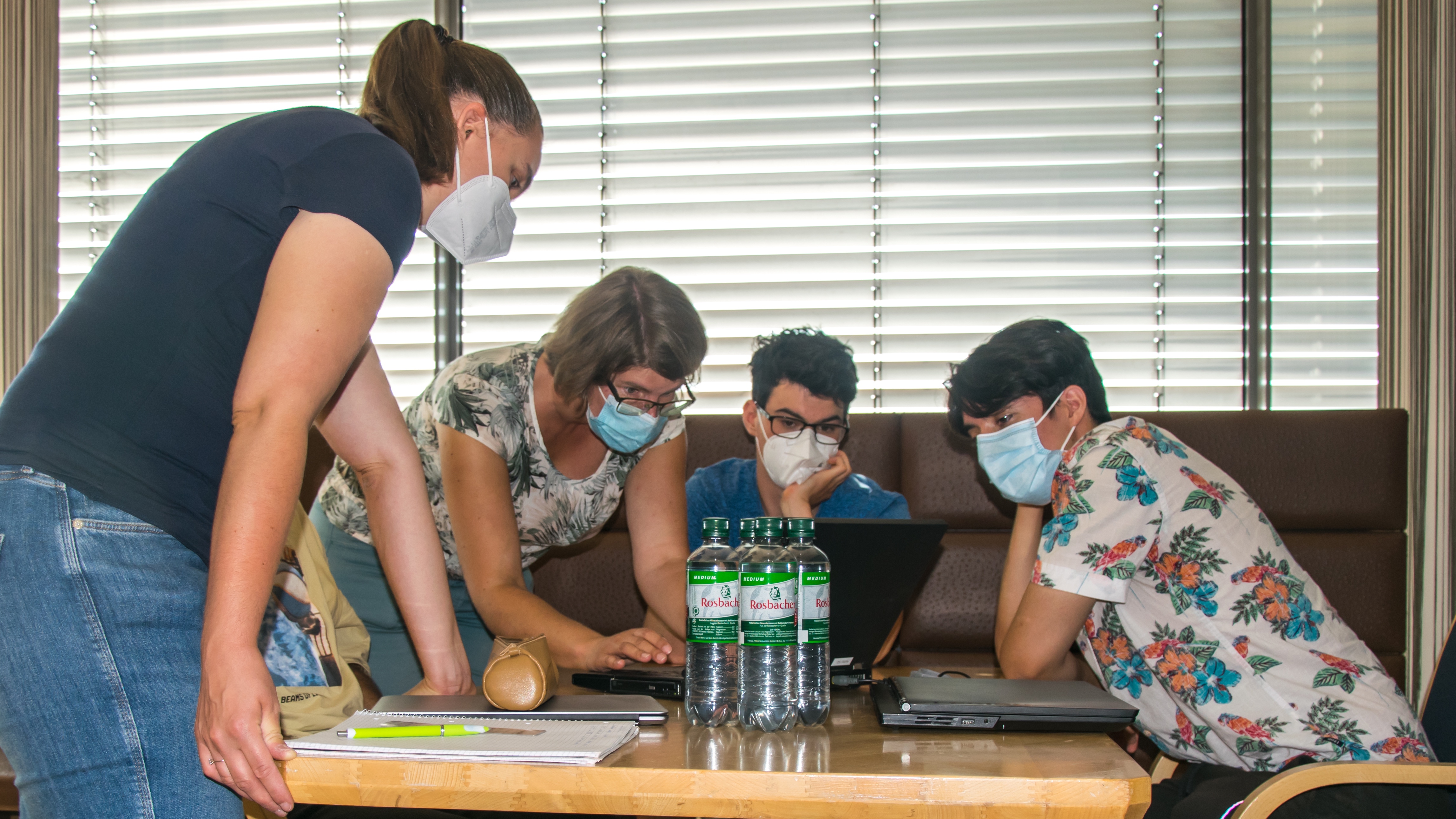
How can students apply and participate?
- Generally, the application procedure depends on at which university the interested student is enrolled in.
-
At Goethe University (Frankfurt, Germany)
At Goethe University, this project will be offered as part of the Astrophysical Proseminar ("Astrophysikalisches Proseminar"). If you are a student at Goethe University and interested in participating, please just register for the course via OLAT. All students are welcome to participate, though preference may be given to students who have completed the courses Introduction to Astronomy I-II (Einführung in die Astronomie I–II). While Python will be a large part of the research in EXPLORE, no prior experience in Python is needed (except for a strong motivation to learn). The course will be held in English. -
At York University (Toronto, Canada)
Canadian students from York University must apply for participation by submitting a cover letter stating their interest, their CV and a transcript (unofficial copy). If you have further questions, please contact Sean Tulin (stulin@yorku.ca). -
At University of Alberta (Edmonton, Canada)
Canadian students from the University of Alberta must apply for participation by submitting a cover letter stating their interest, their CV and a transcript (unofficial copy). If you have further questions, please contact Saeed Rastgoo (srastgoo@ualberta.ca) or Nassim Bozorgnia (nbozorgnia@ualberta.ca).
An Overview: All EXPLORE Editions
- Since it was first launched in 2020, EXPLORE has already taken place multiple times, connecting and bringing together students from Germany, Canada and the US to do exiting research. Each edition has its own topical focus and will be mentored by a different team.
-
Edition VI: Cosmic Probes of Dark Matter |
Poster
Research topics: (Self-interacting) Dark Matter, Gravitational Waves, Phase transitions, Chemistry of the Milky Way -
Edition V: Echoes from the Dark Universe |
Poster
Research topics: Dark Matter, Dark Stars, Neutron Stars, Cosmology, Gravitational Waves, Cosmic Structure Formation, Quantum Gravity
\(\rightarrow \) EXPLORE 2025 Workshop: Echoes from the Dark Universe
\(\rightarrow \) EXPLORE 2025 Summer School and Conference: Echoes from the Dark Universe -
Edition IV: Frontiers of Matter and Gravity in the Universe |
Poster
Research topics: Dark Matter, Dark Stars, Neutron Stars, Cosmology, Gravitational Waves, Cosmic Structure Formation, Quantum Gravity
\(\rightarrow \) EXPLORE 2024 Workshop: Frontiers of Matter and Gravity in the Universe
\(\rightarrow \) EXPLORE 2024 Summer School: Frontiers of Matter and Gravity in the Universe -
Edition III: Messengers of the Extreme & Ancient Universe |
Poster
Research topics: Stellar Archeology, Cosmology, Dark Matter, Gravitational Waves, Neutron Stars, Machine Learning, Quasars
\(\rightarrow \) EXPLORE 2023 Workshop: Messengers from the Extreme & Ancient Universe
\(\rightarrow \) EXPLORE 2023 Summer School: Messengers from the Extreme & Ancient Universe -
Edition II: Astrophysical Probes of Fundamental Physics
Research topics: Dark Matter, Gravitational Waves, Neutron Stars, Black Holes
\(\rightarrow \) EXPLORE 2022 Workshop: Astrophysical Laboratories of Fundamental Physics
\(\rightarrow \) EXPLORE 2022 Summer School: Astrophysical Laboratories of Fundamental Physics -
Edition I: Astrophysical Laboratories of Dark Matter
Research topics: Dark Matter, Gravitational Waves, Neutron Stars, Black Holes
\(\rightarrow \) EXPLORE 2021 Workshop: Astrophysical Laboratories of Dark Matter
Course Material & Recommended Literature
-
Current Cloud folder for the course material for the EXPLORE V Edition
All the relevant course material for the fifth EXPLORE Edition (winter semester 2024/25) will be collected in a cloud folder which can be accessed by clicking here. Please check out the official EXPLORE V website (including current schedule etc.) as well. -
Recorded lectures from previous EXPLORE Editions
Below you can find the last EXPLORE edition's lectures online. In case there is a lecture you cannot attend this term regurlarly, please inform the EXPLORE mentors in advance and watch the corresponding recorded lecture.- Lecture 1: Introduction (Mentors) and Cosmology (Laura Sagunski)
- Lecture 2: Dark Matter (Sean Tulin & Nassim Bozorgnia)
- Lecture 3: Gravitational Waves (Saeed Rastgoo) & Quasars (Patrick Hall)
- Lecture 4: Machine Learning (Jim Mertens) & Neutron Stars and compact objects (Jürgen Schaffner-Bielich)
- Lecture 5: Near-field cosmology with stars (Camilla Hansen)
-
Learn scientific Python Programming
Students of EXPLORE are encouraged to learn how to do scientific coding with the programming language Python. For this purpose, we have created a GitHub repository with tutorials and exercises for you.
Articles about the EXPLORE Programme
-
Research profile »Space, Time & Matter«
Online article at Jahrbuch 2021, Universität Frankfurt Aktuelles (German/ English) -
Canadian and German Students explore Dark Matter together
Online article at Universität Frankfurt Aktuelles (German/ English)
Online article at Pro-Physik (German)
Press release at Universität Frankfurt PUK (German/English) -
Astrophysics students EXPLORE collaborative research
Online article at York University YFile (English) -
EXPLORE summer school begins
Online article at ELEMENTS Website (English) -
PHAS @ York Newsletter January 2021
Online article at York University Newsletter (English) -
Grenzenlose Astrophysik - Kanadische und deutsche Studenten forschen gemeinsam zu Dunkler Materie und Schwarzen Löchern
Newspaper article at Frankfurter Allgemeine Zeitung (FAZ) (German) -
Dunkle Materie »zum Anfassen«
Online article at idw - Informationsdienst Wissenschaft (German/ English)
Newspaper article at UniReport Universität Frankfurt (German)
Faculty Supervisors





